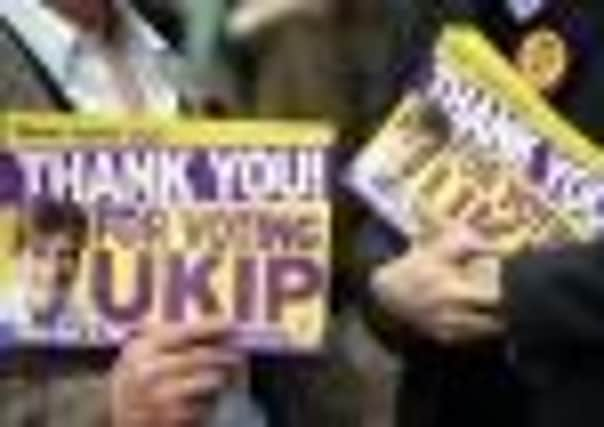John Curtice: Eastleigh shows growing UKIP appeal


Little wonder Tory nerves look rather frayed this weekend.
Yet it would be a mistake to believe that UKIP’s remarkable success in Eastleigh – its 27.8 per cent of the vote easily topped the 21.8 per cent the party won in Rotherham last November, let alone the 14.3 per cent it secured in Corby – made uncomfortable reading for the Tories alone. UKIP demonstrated it was capable of damaging Labour and the Liberal Democrats too.
Opinion polls taken in Eastleigh during the last week of the campaign showed that voters who backed Gordon Brown or Nick Clegg in 2010 were switching to UKIP at pretty much the same rate as those who had voted for David Cameron three years ago. Moreover younger voters, not always the most fertile territory for the party, seemed to be just as willing as their older counterparts to back the party’s articulate candidate, Diane James.
Advertisement
Hide AdAdvertisement
Hide AdAs a result Labour made hardly any progress at all. Its 9.8 per cent share was barely any higher than the 9.6 per cent it won in 2010, and was far short of the 21.1 per cent it managed in 2005. The party has to ask itself why voters suffering from economic austerity and falling living standards found UKIP’s calls to curb European Union immigration a more appealing way of expressing their discontent than Ed Miliband’s suggestion that Britain could grow its way out of its economic troubles by putting more money in the hands of the ‘squeezed middle’.
Meanwhile the Liberal Democrats’ success in defending a seat in difficult circumstances flattered to deceive. The party’s vote fell by 14.5 points, a drop every bit as bad as that registered by current UK-wide opinion polls. Its 32.1 per cent share was the lowest share to be registered by the winning party in any post-war constituency by-election – beating the previous record established in Dundee East in 1973 when Labour narrowly headed off what then hwas also a new ‘insurgency’, the SNP.
In truth, the Liberal Democrats remain a party that has lost (to UKIP) its traditional role as a party of protest but which still has to demonstrate it can make electoral capital out of being a party of government.
They key question now is whether UKIP can sustain its success. Its appeal to English/British nationalism certainly has little resonance north of the border. Local elections in England in May could prove more of a challenge than it appreciates as it will be defending a high watermark achieved on the same day as the 2009 Euro-elections. But unless and until the established parties can begin to connect with voters’ pain, UKIP could well continue to make life uncomfortable for them all.
• John Curtice is Professor of Politics, Strathclyde University